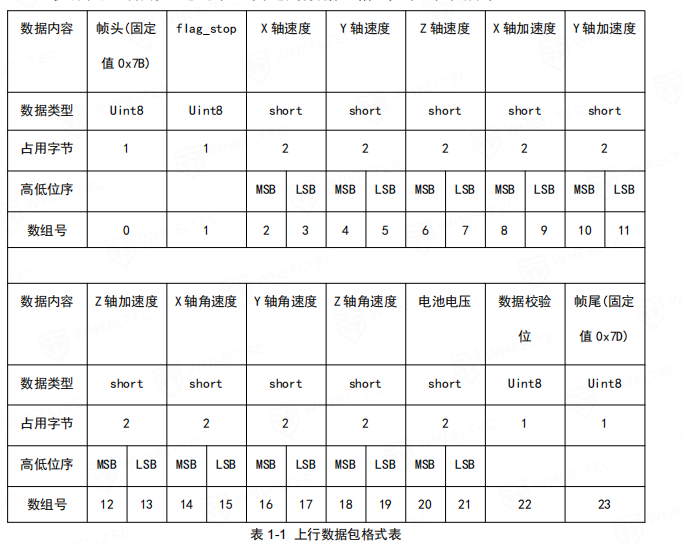ROS2话题发布实验指导书---odom(C++)
基于T-bot底盘实验指导书---odom话题发布
1.考核目标
1.1 实验背景
在移动机器人领域,里程计(Odometry)是评估机器人位置和运动的重要技术。里程计通过测量轮子的旋转或传感器数据,计算出机器人在环境中的移动轨迹。随着机器人技术的发展,里程计在自主导航、路径规划和环境感知等方面发挥着越来越重要的作用。本实验旨在加深对移动机器人运动学的理解,为后续的机器人控制和应用打下坚实的基础。通过理论与实践相结合的方式,学生将能够掌握移动机器人的基本运动学原理,学会利用ROS开发机器人系统,并培养解决实际问题的能力。 
节点运行 输入如下指令 ros2 run teleop_twist_keyboard teleop_twist_keyboard 启动键盘控制结点,该结点是系统默认自带的,不需要我们去编写这个结点。
消息类型 单独打开终端,通过查看/cmd_vel,终端中输入ros2 topic info /cmd_vel获得该话题的类型
Type:geometry_msgs/msg/Twis 关于odom话题可以参考odom官方解释1 2 3 4 5 6 7
# This represents an estimate of a position and velocity in free space. # The pose in this message should be specified in the coordinate frame given by header.frame_id. # The twist in this message should be specified in the coordinate frame given by the child_frame_id Header header string child_frame_id geometry_msgs/PoseWithCovariance pose geometry_msgs/TwistWithCovariance twist
1.2 实验目标
- 创建消息发布功能:制作一个 ROS 节点,发布
/odom消息。 - 验证响应能力:测试小车在不同速度和方向命令下的响应能力,确保其能够按预期进行移动,记录odom的数据。
- 数据记录与分析:记录实验过程中小车的运动数据,与实际距离进行比较,以便进行后续分析。
2.实验步骤
2.1创建包
基于上次的消息订阅实验,本实验的工程无需创建,采用之前的my_base即可。
2.2编写发布消息代码
打开my_base.cpp,文件引用头文件bot_serial.h,该头文件中定义了下发指令的结构体和基本类
1
2
3
4
5
6
7
8
9
10
11
12
13
14
15
16
17
18
19
20
#define SEND_DATA_CHECK 1
#define READ_DATA_CHECK 0
#define FRAME_HEADER 0X7B //Frame head
#define FRAME_TAIL 0X7D //Frame tail
#define RECEIVE_DATA_SIZE 24
#define SEND_DATA_SIZE 11
#define PI 3.1415926f //PI //圆周率
//The structure in which the lower computer sends data to the ROS
//下位机向ROS发送数据的结构体
typedef struct _RECEIVE_DATA_
{
uint8_t rx[RECEIVE_DATA_SIZE];
uint8_t Flag_Stop;
unsigned char Frame_Header;
float X_speed;
float Y_speed;
float Z_speed;
float Power_Voltage;
unsigned char Frame_Tail;
}RECEIVE_DATA;
该结构体描述了stm32微控制器上发数据的详细细节,分析可知,X_speed代表车X轴的速度,Y_speed代表车Y轴的速度,Z_speed代表车旋转速度。rx[RECEIVE_DATA_SIZE]表示通过串口上发的数据 
1
2
3
4
5
6
7
8
9
10
11
12
13
14
15
16
17
18
19
20
21
22
class turn_on_robot : public rclcpp::Node
{
public:
turn_on_robot(); //Constructor //构造函数
~turn_on_robot(); //Destructor //析构函数
void Control(); //Loop control code //循环控制代码
serial::Serial Stm32_Serial; //Declare a serial object //声明串口对象
private:
rclcpp::Time _Now, _Last_Time; //Time dependent, used for
float Sampling_Time;
RECEIVE_DATA Receive_Data;
SEND_DATA Send_Data;
bool Get_Sensor_Data_New();
unsigned char Check_Sum(unsigned char Count_Number,unsigned char mode);
//check function //校验函数
short IMU_Trans(uint8_t Data_High,uint8_t Data_Low);
//IMU data conversion read //IMU数据转化读取
float Odom_Trans(uint8_t Data_High,uint8_t Data_Low);
//Odometer data is converted to read //里程计数据转化读取
};
为了建立底盘与ROS系统之间的联系,有必要建立一个类,并在内中定义串口接serial::Serial Stm32_SerialStm32_Serial,其中Get_senosr_Data_New()函数与Check_Sum()函数不属于考核点,老师已经实现了,直接调用即可。学生需要完成类的构造函数turn_on_robot()和Control()函数
my_base.c主要由四个函数,请将以下四个函数拷贝到文件中,并实现缺失的代码。
- 函数1 ```c++ #include “bot_serial.h” int main(int argc, char **argv) { rclcpp::init(argc, argv); turn_on_robot Robot_Control;//Instantiate an object //实例化一个对象 Robot_Control.Control(); rclcpp::shutdown(); return 0; }
1
2
3
4
5
6
7
8
9
10
11
12
13
14
15
16
17
- ***函数2***
可见,我们同时需要在my_base.c文件中需要实现Robot_Control.Control()函数,该函数的模板如下:
```C++
void turn_on_robot::Control()
{
while(rclcpp::ok())
{
try
{
rclcpp::spin_some(this->get_node_base_interface());
}
catch (const rclcpp::exceptions::RCLError & e )
{
RCLCPP_ERROR(this->get_logger(),"unexpectedly failed whith %s",e.what());
}
}
}
需要在该函数内完成里程计的计算,并实现话题的发布。
1
2
3
4
5
6
7
8
9
10
11
12
13
14
15
16
17
18
19
20
21
22
23
24
25
void turn_on_robot::Control()
{
//_Last_Time = ros::Time::now();
_Last_Time = rclcpp::Node::now();
while(rclcpp::ok())
{
try
{
_Now = rclcpp::Node::now();
Sampling_Time = (_Now - _Last_Time).seconds(); //Retrieves
if (true == Get_Sensor_Data_New()) //The serial port reads and
{
//填写公式
Publish_Odom(); //Pub the speedometer topic //发布里程计话题
_Last_Time = _Now;
}
rclcpp::spin_some(this->get_node_base_interface()); //The loop
}
catch (const rclcpp::exceptions::RCLError & e )
{
RCLCPP_ERROR(this->get_logger(),"unexpectedly failed whith %s",e.what());
}
}
}
- 函数4,odom话题发布
1
2
3
4
5
6
7
8
9
10
11
12
13
14
15
16
17
18
19
20
21
22
23
24
25
26
27
28
29
30
31
32
33
34
35
void turn_on_robot::Publish_Odom()
{
//Convert the Z-axis rotation Angle into a quaternion for expression
//把Z轴转角转换为四元数进行表达
tf2::Quaternion q;
q.setRPY(0,0,Robot_Pos.Z);
geometry_msgs::msg::Quaternion odom_quat=tf2::toMsg(q);
nav_msgs::msg::Odometry odom; //Instance the odometer topic data //实例化里程计话题数据
odom.header.stamp = rclcpp::Node::now(); ;
odom.header.frame_id = odom_frame_id; // Odometer TF parent coordinates //里程计TF父坐标
odom.pose.pose.position.x = Robot_Pos.X; //Position //位置
odom.pose.pose.position.y = Robot_Pos.Y;
odom.pose.pose.position.z = Robot_Pos.Z;
odom.pose.pose.orientation = odom_quat; //Posture, Quaternion converted by Z-axis rotation //姿态,通过Z轴转角转换的四元数
odom.child_frame_id = robot_frame_id; // Odometer TF subcoordinates //里程计TF子坐标
odom.twist.twist.linear.x = Robot_Vel.X; //Speed in the X direction //X方向速度
odom.twist.twist.linear.y = Robot_Vel.Y; //Speed in the Y direction //Y方向速度
odom.twist.twist.angular.z = Robot_Vel.Z; //Angular velocity around the Z axis //绕Z轴角速度
//There are two types of this matrix, which are used when the robot is at rest and when it is moving.Extended Kalman Filtering officially provides 2 matrices for the robot_pose_ekf feature pack
//这个矩阵有两种,分别在机器人静止和运动的时候使用。扩展卡尔曼滤波官方提供的2个矩阵,用于robot_pose_ekf功能包
if(Robot_Vel.X== 0&&Robot_Vel.Y== 0&&Robot_Vel.Z== 0)
//If the velocity is zero, it means that the error of the encoder will be relatively small, and the data of the encoder will be considered more reliable
//如果velocity是零,说明编码器的误差会比较小,认为编码器数据更可靠
memcpy(&odom.pose.covariance, odom_pose_covariance2, sizeof(odom_pose_covariance2)),
memcpy(&odom.twist.covariance, odom_twist_covariance2, sizeof(odom_twist_covariance2));
else
//If the velocity of the trolley is non-zero, considering the sliding error that may be brought by the encoder in motion, the data of IMU is considered to be more reliable
//如果小车velocity非零,考虑到运动中编码器可能带来的滑动误差,认为imu的数据更可靠
memcpy(&odom.pose.covariance, odom_pose_covariance, sizeof(odom_pose_covariance)),
memcpy(&odom.twist.covariance, odom_twist_covariance, sizeof(odom_twist_covariance));
odom_publisher->publish(odom); //Pub odometer topic //发布里程计话题
}
2.3修改package.xml
进入ros2_ws/src/my_base目录并打开package.xml,按照之前教程要求填写description ,maintainer和license.如果你并不想开源你的代码,可以忽略此步。
1
2
3
<description>TODO: Package description</description>
<maintainer email="nxrobo@todo.todo">nxrobo</maintainer>
<license>TODO: License declaration</license>
在编译工具依赖ament_cmake后
1
<buildtool_depend>ament_cmake</buildtool_depend>
添加下列依赖项:
1
2
<depend>rclcpp</depend>
<depend>std_msgs</depend>
改写完毕后注意记得保存文档!
2.4修改CmakeLists.txt
打开 CMakeLists.txt ,在 find_package(ament_cmake REQUIRED) 下添加两行:
1
2
3
4
5
6
7
find_package(rclcpp REQUIRED)
find_package(geometry_msgs REQUIRED)
find_package(tf2_geometry_msgs REQUIRED)
find_package(serial REQUIRED)
add_executable(my_base src/my_base.cpp)
ament_target_dependencies(my_base rclcpp serial tf2_geometry_msgs)
然后在添加可执行文件需要编译的源文件,并命名为 talker或者其他你认为合适的名字
1
3.编译运行
打开终端,执行如下命令: 执行colcon build 执行 source install/setup.bash 执行 ros2 run my_base my_base
4.测试验证
- 控制底盘运动一段距离,同时观察odom输出值变化;
- 采用米尺测量小车X轴方向和Y轴方向的位移,和odom对比,分析两者的区别和产生区别的原理